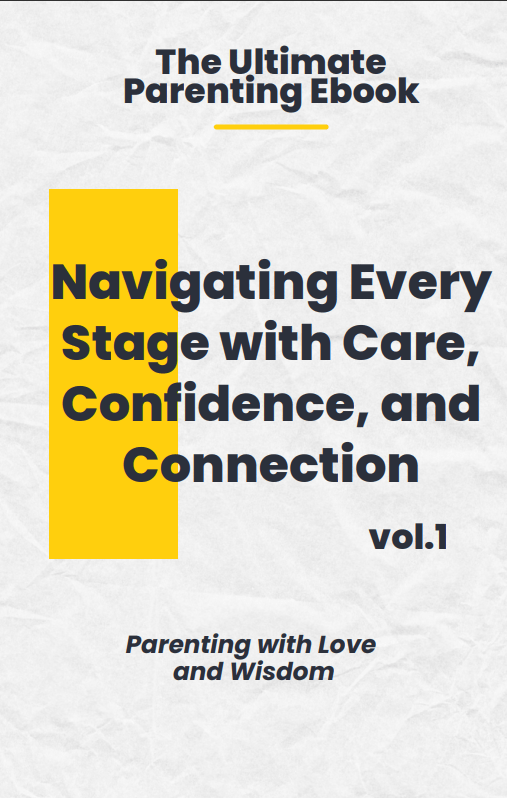
Co-parenting isn’t for the faint of heart. Whether you’re navigating a difficult divorce or adjusting to life as a separated parent, the way you communicate with your co-parent can make or break your child’s emotional well-being. If you’re feeling stuck in a cycle of misunderstandings, last-minute schedule changes, or emotionally charged arguments, you’re not alone.
Below, we’ll discuss co-parenting communication strategies that actually work. No fluff, no generic advice—just actionable solutions designed to help you and your co-parent talk effectively, even in the toughest situations.
In This Blog
ToggleWhy Communication Is the Key to Successful Co-Parenting
Think of co-parenting as a team sport. Your child is the goal, and the way you communicate with your co-parent determines whether you win or lose. Miscommunication can lead to frustration, resentment, and, ultimately, a chaotic environment for your child. On the flip side, clear and respectful communication fosters stability, cooperation, and a better quality of life for everyone involved.
So, where do you start? By learning and implementing effective co-parenting tips that address real-world challenges.
Co-Parenting Communication Strategies That Actually Work
Here are these
1. Start With a Co-Parenting Agreement (Your Blueprint for Success)
Imagine trying to build a house without a blueprint—it’s chaotic, right? That’s why a co-parenting agreement is essential. It sets clear expectations and eliminates guesswork.
- What to Include in Your Agreement
- A shared calendar for school events, holidays, and vacations.
- Guidelines for handling emergencies or last-minute changes.
- Preferred communication methods (text, email, apps like OurFamilyWizard).
Pro Tip: If creating this agreement feels overwhelming, consider involving a mediator. It’s an investment in your child’s future.
2. Choose the Right Communication Channel for Every Situation
Not every conversation needs to be a phone call or an in-person meeting. In fact, mismatched communication methods can lead to misunderstandings.
- For Routine Updates: Use apps like Cozi or TalkingParents to streamline schedules.
- For Emotional Topics: Stick to email or scheduled conversations to avoid knee-jerk reactions.
- For Urgent Matters: A brief, neutral text message works best.
By choosing the right method, you reduce friction and keep things professional.
3. Practice Neutral and Respectful Language
We get it—emotions run high when co-parenting, especially if the relationship ended on rocky terms. But emotionally charged language can derail even the simplest conversations.
- What to Avoid
- Blame: “You’re always late!”
- Sarcasm: “Wow, another amazing parenting decision.”
- What to Use Instead
- Neutral phrases: “Let’s figure out a solution that works for both of us.”
- “I statements”: “I feel frustrated when plans change without notice.”
Actionable Tip: When in doubt, write your response, wait 10 minutes, and reread it. This pause often helps tone down emotional replies.
4. Leverage Technology to Minimize Miscommunication
Technology is your best friend when it comes to communication techniques for divorced parents. Co-parenting apps like OurFamilyWizard and 2Houses help you stay organized and reduce back-and-forth texting.
- How to Use Them
- Share schedules and updates in real-time.
- Document conversations for accountability.
- Set automatic reminders for school events or appointments.
Using tech tools not only streamlines communication but also keeps everything in one place, making co-parenting less stressful.
5. Adopt a Problem-Solving Mindset
Arguments happen—it’s part of life. But when co-parents focus on blame instead of solutions, nothing gets resolved.
- What to Do Instead:
- Focus on the issue, not the person.
- Use collaborative language: “What can we do to make this work for our child?”
- Be willing to compromise when it benefits your child.
Shifting your mindset from “winning” to “solving” creates a more cooperative dynamic.
6. Handle Difficult Co-Parents with Emotional Intelligence
Let’s be real—some co-parents are tough to deal with. Whether it’s a toxic attitude or refusal to cooperate, these situations require extra patience and boundaries.
- Tips for Dealing with High-Conflict Co-Parents
- Stay calm and avoid escalating arguments.
- Stick to facts, not emotions.
- Set boundaries, such as limiting communication to essential topics only.
- Know when to involve a mediator if things get out of hand.
It’s not easy, but maintaining your emotional composure protects your mental health and keeps the focus on your child.
7. Keep Conversations Child-Centric
One of the most harmful habits in co-parenting is using children as messengers or emotional buffers.
- Why It’s Harmful:
- It places undue stress on your child.
- It creates confusion and feelings of loyalty conflict.
Actionable Tip: Use direct communication with your co-parent instead of relying on your child to relay messages. If needed, create scripts for common situations (e.g., rescheduling custody days).
8. Celebrate Wins and Acknowledge Efforts
Yes, even small wins count. Acknowledging your co-parent’s efforts can go a long way in improving your dynamic.
- Examples of Positive Reinforcement:
- “Thanks for being flexible with the schedule this week.”
- “I appreciate how you handled the school pickup situation.”
These simple gestures build goodwill and make future conversations smoother.
Real-Life Scenarios and Solutions
Scenario 1: Handling Last-Minute Changes
- Problem: Your co-parent asks to switch weekends at the last minute.
- Solution: Respond calmly with a clear message:
- “I understand things come up. Let’s figure out how to adjust without disrupting our child’s plans.”
Scenario 2: Different Parenting Styles
- Problem: You and your co-parent disagree on discipline.
- Solution: Have a calm conversation about aligning on key rules for consistency, especially in front of your child.
Tools and Resources for Better Co-Parenting Communication
- Apps: OurFamilyWizard, TalkingParents, Cozi
- Books: Co-Parenting with a Toxic Ex by Amy J.L. Baker
- Templates: Use downloadable co-parenting agreement templates to structure your conversations.

Conclusion
Co-parenting isn’t about being best friends with your ex; it’s about being the best team for your child. By using these co-parenting communication strategies, you’ll not only reduce stress but also create a stable, loving environment for your child.
Start small. Choose one strategy from this and start applying it today. With time and practice, you’ll see the difference in how you and your co-parent interact—and more importantly, in your child’s happiness.
What challenges have you faced in co-parenting communication?
You may also be interested in : How Single Dads Handle Motherly Roles: Real-Life Solutions Every Mom Should Know




